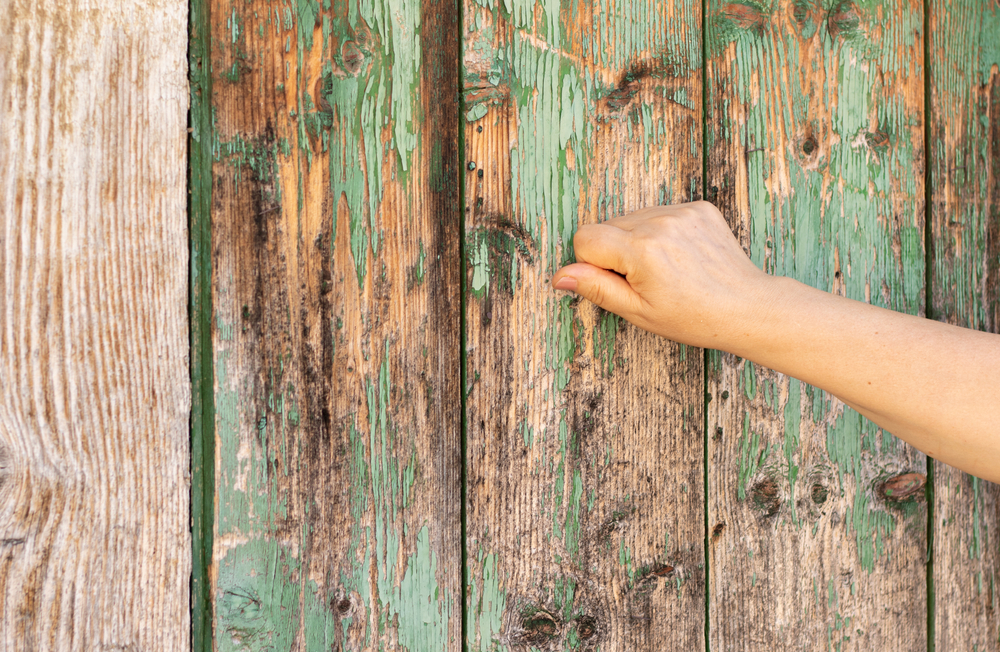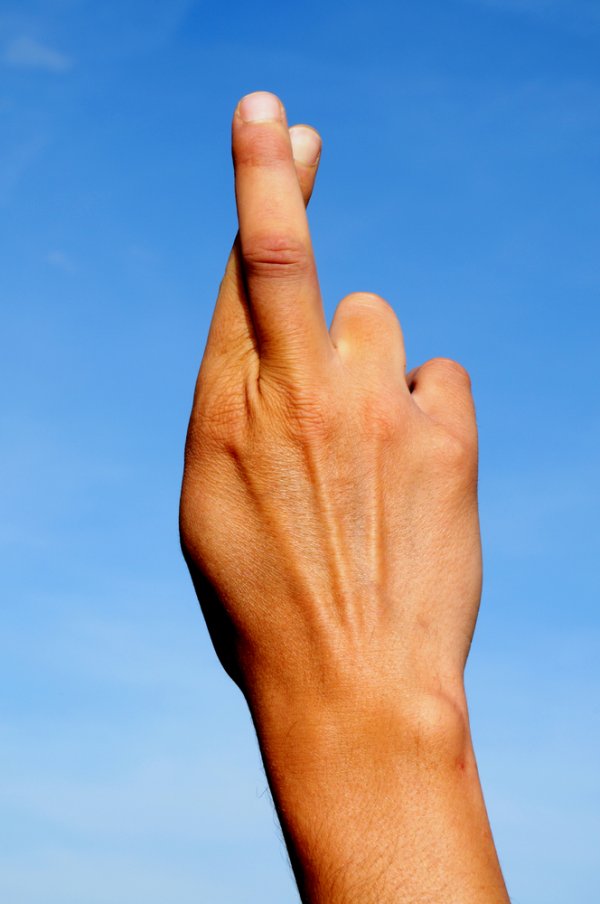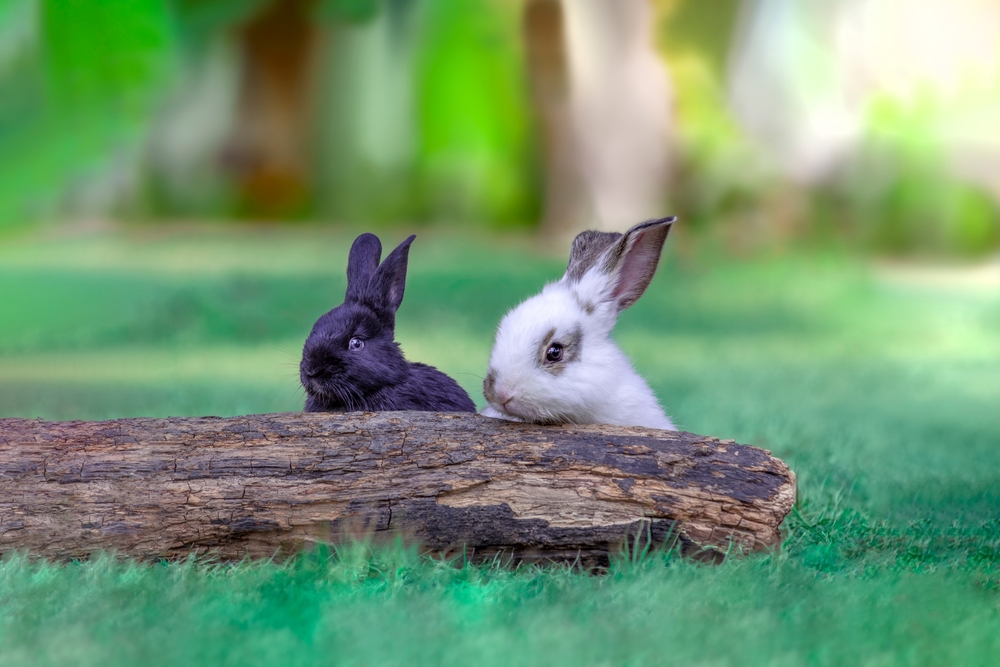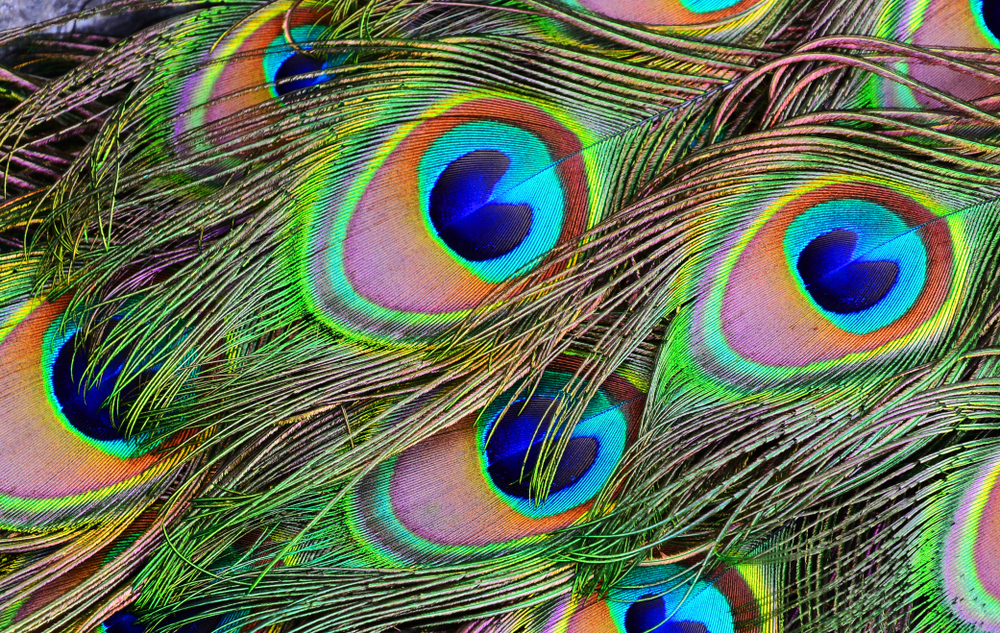Culture and Society: Superstitions and Folklore
General
The British Association for the Advancement of Science (BA), and the University of Hertfordshire professor, Richard Wiseman, conducted an online survey on United Kingdom superstitions in the early years of the 21st century. A total of 2,068 respondents participated in the survey and results were published on several Web sites. A large percentage (nearly 80 percent) of those surveyed admitted to being a little superstitious, and of this group about 40 percent indicated that they were somewhat, or very superstitious. Notably, about 25 percent of the survey respondents from the latter group have a background in science. Survey results give a clear indication that although the practice of superstitious behaviors and beliefs dates back 300 years or more, it continues to play a big role in modern British culture. The majority of British survey respondents expressed their hesitancy to break superstitions because they believe that doing so would only intensify their worries and further add to the ongoing uncertainties in their lives.
Touching wood topped the survey list of popular superstitions, followed by crossing of fingers, avoiding ladders, and mirror smashing. All of these relate to seeking good luck or avoiding bad. Superstitious rituals are often thought to have originated in ancient times from a feeling of helplessness against powerful forces, actions that could not be explained, and a need to impose human will on chaos as a means of control and protection against this uncertainty.
It is interesting to note that the British people of the 16th and 17th centuries experienced the same level of uncertainties as their counterparts today. Similarly, they had turned to superstitions for help in finding justification for their luck and misfortunes when life was unsafe due to religious wars, disease (black plague), and other social crises. It is noteworthy that the 21st-century survey also included younger people, whose superstitions proved just as strong as those of older generations.
Specific Superstitions
Touch Wood
"Touch wood" is the British equivalent of the American expression, "knock on wood." Although various sources say this expression dates back to pre-Christian times, it did not make its appearance in the Oxford English Dictionary until 1908. This expression is commonly used to this day, by young and old alike, to effectively deflect evil consequences or bad luck. Superstitious people are inclined to "touch wood" immediately after having uttered something bad or negative or to ensure continued success and consistent good luck in business, personal life, or projects.
There are several theories about the origin of the "touch wood" expression, however, its exact origin remains unknown. One of the most popular theories is based on an old pagan belief that spirits dwelled in trees, particularly the oak tree. Therefore, touching or knocking on oak wood meant acknowledging or paying respect to the spirits and at the same time requesting protection from them against misfortunes. The practice may also have originated from a similar Irish belief that spirits live inside sacred trees such as ash, holly, and hawthorn, and knocking on wood was a sign of acknowledgment and gratitude to these spirits.
It has been documented that the United States' Native Americans and the Greeks performed the same "touch wood" practice as far back as 2000 BCE, or about 4,000 years ago. Both cultures assumed that since oak trees were often struck by lightning, the sky god and the god of lightning naturally dwelled in these trees. Yet another story tells of an old Celtic belief that a tree can act as an instrument to draw out evil spirits from a possessed person. By touching the body of a tree, the demon is drawn out and sent to the ground.
Another theory about this superstition is rooted in Christianity. Since Christ died on a wooden cross, it became a practice among early Christians to touch a wooden crucifix for "good luck." This practice became so popular that merchants sold small wooden crucifix pendants that served as good luck charms.
"Touch wood" is the most popular superstition in the United Kingdom. However, modern times contributed to changes in this age-old belief, and the wide-spread use of synthetics to replace wood has made it even more difficult to practice this superstition. In the absence of an actual tree, most people knock on substitute materials such as wooden tables, chairs, or any wooden fixture.
Crossing of Fingers
The crossing of fingers is among the most observed superstitions in the United Kingdom. It is also one of the most popular superstitions worldwide. Although generally considered as a sign for good fortune when making a wish, some believe that crossing fingers will ward off evil spirits. For example, in American culture, people often cross their fingers behind their backs when telling a lie or committing an act of dishonesty in order to keep the devil at bay. In China, overlapping the index and middle fingers is a sign for the number 10. Similarly, the deaf and mute crisscross these two fingers to communicate the letter "X" as well as the Roman numeral "X," which also means the number 10.
According to some published articles, crossing fingers used to be a secret sign of recognition among Christians during the times when Christianity was prohibited. However, there is no reliable evidence to support this theory.
The most widely accepted origin of crossing fingers offers a more credible explanation for its existence dating back to the pre-Christian era, and was very popular among early European cultures in the west. According to Charles Panati, a leading authority on research of the origins of superstitions, crossing fingers stemmed from a pagan belief that the cross was a sign of perfect harmony, and that compassionate spirits dwelled at its intersecting points. Therefore, in those days, a wish made on a cross meant "fastening" the wish at its crisscrossing point until such time that the spirits fulfilled the wish.
Back then, the act of crossing fingers did not merely involve overlapping one's own index and middle fingers; the proper gesture was actually made by two friends crossing their index fingers to form a cross together. As the ancient practice goes, the wisher’s index finger was placed over the index finger of the person who would voice the wish. In theory, this gesture evokes empowerment—as one person made a wish, the other one lent mental support. As time passed, the practice of crossing fingers between two friends was simplified to just one individual overlapping their index and middle fingers to form an "X," in this way, just one person can make a wish.
Nowadays, this custom is treated merely as an impulsive gesture. It has likewise evolved to become a popular wishful expression, as in, "I’ll keep my fingers crossed." While there are still traces of this age-old custom, the symbolic act of crossing fingers between two friends has seemingly lost its value over the years.
Avoiding Ladders (Walking Under a Ladder)
Many people in various part of the world, including the United Kingdom, believe that they should keep away from open ladders because it will bring bad luck. Most people avoid walking under a ladder for fear of God’s wrath and attracting unwanted misfortunes in their lives.
One version of the origin of this superstition dates to ancient Egypt in 3000 BCE. The Egyptians have always regarded the triangular shape as sacred, and since a ladder leaning against a wall forms a triangle, the space beneath it was considered sanctified. During those times, passing underneath a ladder or any triangular arch was equivalent to violating a consecrated space. Moreover, the Egyptians considered the ladder as a symbol of good luck. They believed that it was the instrument used to rescue the Egyptian sun god Osiris from the spirit of darkness. Egyptians also often placed ladders in the tombs of Egyptian kings to help them climb to the heavens.
Christians adopted the ladder superstition centuries later. They believed that during Christ’s crucifixion, a ladder rested against His cross. Thus, it became a symbol of betrayal and death. Another Christian variation of this belief is that the triangular shape formed by the ladder, the wall, and the ground represents the Holy Trinity. For this reason, many people believe that walking under a ladder is tantamount to violating a sacred area. This act is considered a punishable transgression because it demonstrates an immense disrespect for God and puts you in collusion with the devil. However, this act is thought to bring bad luck only to Christians who believe in the existence of the Holy Trinity.
Another origin of this superstition dates back to the Middle Ages, specifically in England and France, during the 1600s. A leaning ladder bore resemblance to the gallows, a place where they hung criminals. So, walking under a ladder implied acting out your own execution.
There are several ways to reverse the bad luck if you accidentally walk under a ladder: cross your fingers until you see a dog; spit three times through the steps of the ladder; or spit on your shoe while walking but without looking down on your shoe until the spit has dried. You can also reverse the negative effects of this superstition by making a wish while walking backwards from the ladder under which you accidentally walked.
An ancient Roman remedy prescribed the use of the mano figa (fig hand) in reversing the bad luck. This gesture is considered obscene, and is done by clenching the fist with the thumb protruding between the index and middle fingers. Figa means “fig” in Italian, and figa is a slang term for female genitalia, due to the alleged resemblance to the fig fruit. Used in an upward direction, the gesture is of defiance, similar to “up yours.” In the downward direction, the mano figa takes on a phallic look and represents the all-powerful and protective horn. So, the fist bearing the phallic gesture is to be thrust towards the ladder because Romans believed that such a display of obscenity would divert evil, with making the sign also considered protection from the Evil Eye. When making this gesture, people are to say, “May the Evil Eye do no harm.”
Although there are more sensible and obvious reasons for avoiding open ladders, the results of the survey may well indicate that many Britons continue to practice this belief today not only for its practical value but, more importantly, in order to avoid bad luck and misfortunes.
Smashing Mirrors (Breaking Mirrors)
For many years, mirrors have often been associated with dreadful myths and horrors. One popular superstitious belief about mirrors is that smashing or breaking a mirror will result in seven years of bad luck. The general belief during ancient times was that a person’s reflection in the mirror represented the image of his soul. Therefore, breaking a mirror would damage the soul and expose that person to seven years of hardship. The Romans proscribed the length of time because they believed that the human body becomes invigorated or re-energized every seven years.
The first mirrors, made of polished metals of brass, bronze, silver, and gold, were actually unbreakable. These were used primarily by the ancient Egyptians, Greeks, and the Hebrews. In the 6th century BCE, the Greeks began a divination practice called catoptromancy, which is similar to that of a fortune-teller’s crystal ball and the Roman’s mirratorium (a glass water bowl). It was believed that a "mirror seer" could predict the future of anyone who cast his image on its surface. Breaking the mirror was interpreted as a bad sign or worse—an omen of impending death for the person who broke it.
The Romans adopted the same concept with some variations during the First Century CE. Breaking mirrors would bring seven years of bad luck based on their belief that a person’s well-being changed every seven years, and mirrors reflected not just a person’s image but, more symbolically, his health. So it was predicted that a smashed or broken mirror would mean seven years of poor health and misfortunes.
The Italians, around the 15th century, also practiced the mirror superstition for practical reasons. At that time, the first ever breakable glass was manufactured in Venice and was very costly. The wealthy would threaten their servants to be cautious in cleaning the mirrors because breaking a mirror would bring them seven years of a fate much worse than death. Such an exaggeration succeeded in strengthening this superstitious belief so that even by the mid-1600s, when mirrors became affordable and inexpensive in England and France, the broken mirror superstition had been firmly implanted in their traditions.
The bad luck or misfortune attached to this superstition may be reversed by several methods. The most popular way is to grind the broken pieces of glass to dust or simply bury the pieces of broken glass underground during a full moon or by moonlight.
Other ways include:
- Throwing salt over one’s shoulder (symbolic of actually throwing salt into the devil’s face in order to blind him, thus gaining back good fortune)
- Turning around clockwise three times shortly after breaking the mirror
- Touching a tombstone using a piece of the broken mirror
- Burning the broken mirror then saving its remains for a year before burying them underground
- The night after breaking a mirror, light seven white candles and at midnight, blow them out in a single breath
Opening of Umbrellas Indoors
A popular British superstition holds that if you open an umbrella indoors, bad luck will "rain" on you. Another version suggests that opening a black umbrella indoors will bring bad luck only if there is a sick person inside the house; doing so will make the person’s condition grow worse.
The origin of the umbrella superstition can be traced back to the Egyptians. It was said that umbrellas were invented as protection from the sun, not from the rain. Egyptians believed that the sky’s awning was in fact the body of the celestial goddess Nut, whose torso covered the entire planet like a big umbrella. The Egyptians handcrafted umbrellas as a mortal personification of the goddess, and only the noble leaders were permitted to use them. The shade they provided was considered sacred. To step into the shade, even by accident, was considered disrespectful and an omen for bad luck.
Another legend is that from 1380-1340 BCE, an Egyptian pharaoh named Akhenaten imposed a sun-worshipping religion among his people. As his temples had no ceilings, opening an umbrella indoors implied that one was denying the blessings of the sun god; hence, such an act would insult him and automatically earn his wrath.
Another possible origin of this superstition dates back to the year 1682, when an ambassador from the King of Batam (a province in Indonesia), gave England’s Prince Rupert two big umbrellas. The prince died a few months after receiving the gift, and, similarly, the Kingdom of Batam collapsed and deteriorated. The superstitious belief in the bad luck brought about by opening an umbrella indoors may have originated from the timing of these two incidents.
On the other hand, folklorists assert that the negative superstitious belief of opening an umbrella indoors actually stems from a more practical foundation. In 18th century London, metal-spoked waterproof umbrellas came into fashion and became instant hazards, especially when opened indoors. The danger in opening these umbrellas inside the house heightened to a point that fights would often ensue among friends and family members, even for the most minor of mishaps.
The use of umbrellas is frequently associated with England, perhaps because the British weather can often be described as rainy. However, except for what may be regarded as sensible and practical reasons for not opening an umbrella indoors, modern British people show no proof that they still observe this age-old belief for superstitious reasons; not one person in the above-mentioned survey endorsed this particular belief.
Other Superstitions
Aging and Death
- Intense mourning was rampant centuries ago and believed to disturb the spirit of the dead person. In 1854, a grieving mother was said to have been visited by the spirit of her dead daughter who begged her to stop her lamentations so she can rest in peace.
- When the body of a murdered person is touched by the murderer, the corpse will bleed.
- Touching the dead body of a murdered person is an age-old custom of proving that one is not guilty or responsible for the death of the deceased.
Animals
- To find a live snake in your doorway or near the doorway of a house is considered an omen for death.
- A black beetle crossing the floor of a house is a sign of bad luck to those who live there. It is also unlucky to kill them. On The Isle of Man, people believe that killing a beetle will bring about misfortunes and seven days of rain. On the lighter side, beetles were believed to cure whooping cough if the beetle was placed in a box held by the sick person. When the beetle died, the whooping cough would likewise disappear.
- The ancient Britons believed that fish contained water spirits and that the first fish caught could predict the catch for the entire period. If a female fish were caught, then the catch would be bountiful. If male, then only a handful would be caught. A person who counted his catch before the day’s end was considered unlucky for he would not be able to catch any more fish during the same day.
- An old British superstition claims that if a child rides on a bear's back he will be protected from whooping cough. (Bears no longer roam in Britain.)
- The meeting of two or three ravens is considered bad luck in some areas of the UK. Some also believe in an old superstition that the crown of England will be lost if ever the ravens leave the Tower of London.
- In the Middle Ages, the British people linked witches with bats. It is believed to be bad luck if you see bats flying about and hear their cries. In Wales and The Isle of Man, bats were thought to transform themselves into witches. In olden times, a song was sung out loud whenever bats were seen hovering about:
"Black Bat, bear away
Fly over here away
And come again another day
Black Bat, bear away." - The black cat is said to bring good luck and the white cat bad luck. The English tortoiseshell cats are said to bring good fortune to their owners. If a cat leaves the house while someone is sick and does not return, the sick person will die. Any cat that jumps over a coffin brings a bad omen to the departed soul.
- It is believed that when a cat runs around wildly and starts clawing at things, a strong wind or storm is on its way.
- Black rabbits are believed to carry the souls of humans, while white rabbits are thought to be witches.
- Peacock feathers are considered very unlucky and must not be displayed inside the home. The reason behind this superstition is that the eye shape visible on its feathers is believed to be associated with the Evil Eye.
Birds
- A bird pecking at a window of a house means bad luck.
- A bird entering a house through its chimney is an omen for death.
- In Devon, UK the Oxenham family of South Tawton claimed that a bird appeared in the bedroom of a family member who was about to die. The bird had a white breast. It flew around the room and floated about on the sick person’s bed before vanishing in thin air. The person died shortly thereafter.
- An ancient Sussex belief holds that a large heron could be spotted perched on the cathedral immediately before the death of the resident bishop.
- In the city of Salisbury in the county of Wiltshire, it is believed that when you see two large white birds flying without seemingly flapping their wings, it is an omen for the death of the incumbent bishop. Bishops Moberly in 1885 and Wordsworth in 1911 were reported to have died shortly after these mysterious birds were spotted.
- In ancient times, it was believed that the recently deceased would sometimes appear to their loved ones in the form of a bird.
- A seafarer’s legend holds that the souls of the sailors who die at sea actually live in the bodies of various seabirds, so these birds should never be killed.
- When night birds such as an owl appear during the day, it is an omen for bad luck.
- If a sparrow enters a house, it means death to the one who lives there. Another superstition holds that if a sparrow is caught, it must be killed immediately or it will mean death to the person who caught it.
Courtship and Marriage
- If a young woman goes into the barn on the eve of Halloween night and turns the corn sifter three times, she will be able to see the image of her future husband.
- On the eve of St. Valentine's Day, if a young woman pins bay leaves on her pillow, one at each corner and one in the middle, she will dream of her future lover or husband.
- The bride’s cake, which is made up of many rich and aromatic ingredients, and topped with an icing made of white sugar and bitter almonds, symbolizes the variations between pleasure and pain experienced in the state of marriage.
- If a young woman removes the garment which she has worn on a midsummer-eve, washes it, and turns it inside out before hanging it quietly onto the back of a chair, she will be able to see her future husband come midnight.
- If a young woman walks backwards to a garden and plucks a rose on a midsummer’s eve, she will know who will be her future husband. She should carefully sew the rose in a paper bag and place it in a dark drawer where it will remain until Christmas day. On Christmas morning, she must gently remove the rose from the bag, place it on her bosom, and wear it to church. The man who asks about the rose, or takes it from her without permission, is the one destined to be her future husband.
Good Luck Acts and Signs
- A black cat means good luck, and is shown on many good-luck greeting and birthday cards in England.
- A horseshoe over the door brings good luck. But the horseshoe needs to be positioned properly or luck will run out. Horseshoes were originally made of iron, which is known to provide protection against witches and devils. Finding a horseshoe also brings good luck, but it requires a specific ritual. Pick up the horseshoe with the right hand, spit on both ends of it and then throw it backwards over the left shoulder, and proceed without looking back.
- A rabbit’s foot is considered a lucky charm and saying "white rabbit" on the first day of each month brings good luck. The superstition is associated with the belief that rabbits or hares represent a leap into the future, or moving forward in life and happiness.
Christmas and New Year Superstitions
- In the UK, holly and ivy have always been used as Christmas decorations, but according to a superstitious belief, the kind of holly helps married couples find out who shall be the master of the house throughout the coming year. If the holly is smooth, the wife will be the master, but if it is prickly, then the husband will be the master of the house.
- The ivy is considered a plant carrying a bad or harmful omen, so care should be taken when using it to decorate houses during Christmas. As a rule, ivy should not be used predominantly as a Christmas decoration.
- Anyone who stands under mistletoe cannot refuse to be kissed. This practice was already widespread in the early 19th century and continues to this day. This practice stemmed from the belief that the mistletoe promotes conception among females if they carry a piece of it with them.
- Christmas food also bears good luck. One belief says that if you eat 12 mince pies from 12 different friends during the 12 days of Christmas, then you will receive good fortune in the 12 months to follow.
- In Christian churches, Holy Innocents (Childermas, December 28) is observed in commemoration of all the first-born children massacred by King Herod. The day is treated with dismal sadness coupled with muffled peals of bells. Even if it falls within the 12 days of Christmas, this day is regarded with a subdued and penitential air. A superstitious belief held that if anything was started on this day it would go terribly wrong or would never be finished. Thus, fishermen refused to leave the harbors. Even in homes, no major housework, particularly doing the laundry, was done because according to superstitious beliefs it would certainly result in a death in the family.
- First footing or "first footer" is equivalent to the Scottish New Year or Hogmanay. A first-footer is the first person to enter your house on January 1st and is supposed to bring either good or bad luck in your life for the next 12 months. Following this old Scottish tradition, you must feed this person all the food you have when he comes to your house and you must ensure that this person arrives carrying a small lump of coal, which should be thrown onto the fire.
- In welcoming the new year, the superstitious practice is to open all the doors and windows to "let the new year in." As soon as the clock struck 12, it was traditional to open the back door first, to let the old year out; then, the front door, to let the new year in.
- The first maiden who draws a pail full of water from the village well on New Year’s Day is considered very lucky, for she has secured for herself the "flower of the well" and will be blessed with happiness throughout the year. This age-old custom of collecting water was confined to the ladies who would often sing:
"The flower o' the well to our house goes
And the bonniest lad'll be mine."
Copyright © 1993—2024 World Trade Press. All rights reserved.

 United Kingdom
United Kingdom 





